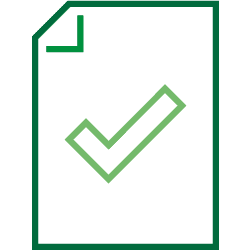environmental
How to get the most out of a long and challenging interview process
Interviewing, particularly for senior-executive level positions, will often entail a rigorous process that includes a lot of prep, energy, and tough technical questions to assess if you have the necessary skills and knowledge to tackle the role. In certain instances, you may even be invited to attend an all-day interview, which entails multiple rounds of exchanges with stakeholders and HR managers to determine how your skillset and character might fit into the company. This type of interview is of course intended to challenge you in a variety of ways, but while it can be tough, it is a valuable experience and an opportunity to get to know the company and the people who make it.If you are called to one of these marathon interviews, it’s important to set yourself up for success in advance, which doesn’t just mean pouring over interview questions and company information. Taking care of yourself both mentally and physically in the run up to such an exciting but demanding opportunity is equally as important as preparing your answers in that fatigue and stress can quickly derail your efforts. This article will guide you to set yourself up for a positive outcome when approaching a long and challenging interview process, whether it’s a job offer or a valuable experience to carry with you for next time. The full pictureBeing called for an interview is a great feeling. It affirms that your resume has hit the mark and that the hiring manager wants to find out more about what you have to offer. The interview itself can challenge you in ways you might not have expected, and in some cases can be a long and demanding process both mentally and physically, but it’s important to remember that if you’re not being challenged, the role might not offer you the right level of growth and development that will keep you fulfilled. Essentially, it’s not supposed to be a breeze.In particular, the idea of an all-day interview can be extremely intimidating, and a certain level of nerves can be a good thing. Single interviews are challenging in their own way, but are typically over in about an hour, while an all-day interview is an entirely different ball game involving meeting with several senior stakeholders within a company to gain different perspectives on your suitability. Depending on the role you are applying for, all-day interviews can come in a range of formats. For example, they may involve a mixture of exercises relevant to your role, plus general tests to check your culture fit, such as personality and IQ tests. This means that you are being tested on things that you can prepare for and traits that are innate to you. Therefore, while reading up on information that can support your professional assessment is one way to prepare, you’ll also need to start the day well rested and calm in order to present the best version of the full picture. Be prepared These interview processes are designed to push you out of your comfort zone and so preparation will be your greatest ally to help you keep your cool and put your best foot forward. Your potential new employers are attempting to gain a full picture of what you are about, from your skills and experience to your attitude and cultural fit and so however talented, experienced, and confident you are in your fit for the role, there will be elements of the process that will challenge you, demanding thorough preparation. Here are some tips to help you to prepare before you walk through the door. Request a scheduleThis is vital in terms of mentally preparing for an all-day interview. Knowing how the day will be laid out will help you get into the headspace of what is expected from you, helping to keep you calm and avoiding anything that might throw you off. You may have four very long interviews, or twelve very short interviews. Whatever the format, you need to make sure you are mentally prepared for what you are facing, and pace yourself around those all-important breaks. Request this a few days before your interview to give the employer time to check everyone’s schedules. Find out the names and job titles of each of your interviewersLook up their LinkedIn pages and find out their experience and expertise, and what relationship they may have with you if you win the position. If they are thought leaders, read their articles and blogs to find out their views on your industry. Researching your interviewers means you can find out how you can relate to them both personally and professionally, which will make them easier to engage with on the day. Prepare questions for your employer A day-long interview is an opportunity for you to get an impression of the institution you are hoping to work for from several angles. Think of all the information you want to gain from the different interviews and ensure you have prepared questions to ask each of them. This also takes the pressure off yourself during each interview and allows for breathing space. And in addition, your interviewers will appreciate the variation in conversation. Gather your examples and stories Prepare some notes on your most notable career achievements. Numbers work best, particularly if you’re short on time, so if your department contributed to a 20% increase in revenue, keep that number in mind. Think of your best and most impactful anecdotes, too - an example of a successful negotiation, a challenge where you were the lead problem solver, a project you managed from conception to launch. And don’t forget to let your personality shine through when telling your story as a good company will be looking for a good mix of skills and character.Stay refreshed The demanding nature of the all-day interview means you need to plan ahead and make sure you are equipped with the right items to keep you feeling fresh and help you stay mentally focused until the end. In most cases you will be offered plenty of chances to hydrate throughout the day, bring a flask of water or coffee is a good idea and will help you to stay alert. Much like a real marathon, these days require stamina, so plan your fuel to keep your brain sharp and keep your energy up between interviews. Choose healthy yet filling snacks like granola bars or fruit and avoid a sugar rush as the slump will be sure to follow. Also, be careful with caffeine. If you rely on it, regulate your coffee throughout the day to avoid any crashes in the afternoon.Having a mid-day freshen up can work wonders for your energy and focus. Packing sanitary items such as hand/face wipes, deodorant/perfume, and mouthwash may give you the reset you need, particularly after food and coffee, and will help to send you into the second half of the day feeling more awake. In addition, packing a comb or hairbrush will help you to remain presentable, which will make you feel better, too.It may be tempting to sit and scroll on your phone in between interviews, but getting fresh air and going for a walk, if you can, will help keep you mentally clear. Gentle physical exercise keeps your blood flowing, prevents tiredness and is the best way to keep fatigue at bay. Try to take a proper break without speculation and analysis of how the day is going. Your brain can’t work at full speed all day - try to slow it down and give it a rest before it goes back into full speed at the next interview. Meditation is known as a hugely beneficial practice in instances like these.Approach each interview consistently It is natural that you will exhibit both strengths and weaknesses throughout the day, and it can be difficult to approach the final interviews with the same energy as the first, but it is vital you remain consistent. Keep in mind that even though this is a marathon for you, your meeting with each interviewer is a stand-alone hour or two for them, so try to keep up with pace. Remember to shake the hand of each interviewer, introduce yourself, and be prepared to repeat yourself a few times throughout the day, however tiring it may seem. End each interview on a positive note about how you are excited to interview for the position, reiterate why you believe you are the ideal date, and that you look forward to hearing from them. However, keep in mind that your interviewers will be comparing notes, so avoid telling the same story and highlighting the same achievements during each interview, or you may risk giving the impression that your experience is more limited than it is. During your research process, think of the best information you have which will be relevant for each position. For example, the Head of Marketing may be engaged with examples where you have shown creativity or solved problems, whereas a sales director will be more interested in figures and percentages. A HR figure will be more interested to hear about your management skills, or a story about dealing with a difficult employee. Again, preparation is key.Stay on your A game Everyone is in the same boat over the course of an all-day interview. Talking for hours in a high-stakes situation can be mentally exhausting, and a mix of anxiety and disinterest can creep in, which is only natural regardless of how passionately you want the job offer. After the initial rush of your first interview, you may be facing fatigue, while your intention was to remain positive, confident, and enthusiastic throughout the day. A good way to avoid showing signs of fatigue during later interviews is to be mindful of your body language. Keep in mind that you should be enthusiastic with your gestures; lean forward towards your interviewer and show your passion for what you do through how you move as well as what you say. If you’re tired towards the end of the day, try to avoid speaking flatly and don’t forget to remain sitting up straight, as this will make you both appear and feel alert and passionate about the topic. The majority of all-day interviews will include a break for lunch mid-way through. Not only is this a chance to get a preview of the company canteen and how people interact during their break, it’s also the perfect opportunity to socialize with your possible new co-workers in an informal setting. Though you may need to refresh, you may also view your lunch break as another kind of interview relating to your cultural and personality fit. Your interviewers will be taking note of your social manner, and whether you are easy to communicate with. It is also an opportunity for you to ask questions and discover more about the company in a more casual setting.Make notes before calling it a dayRemember how you took notes during each interview? At the end of a marathon interview day, you will likely feel completely spent. But don’t give in immediately. Make yourself sit down at your computer or take notes longhand about the points your interviewers emphasized. It’s great if you can be organized about this, but stream of consciousness is fine too, if that’s all you can muster. This is a way to debrief yourself while the information is fresh. Finally, use this to send a personalized email to each interviewer the same day, and thank them by reflecting on something about your conversation and express continued interest. These are sure-fired ways to increase your chances of successfully getting through to the next stage, and one step closer to your dream job. For more advice on how to successfully navigate your way through a marathon interview process, our expert team at LVI Associates is here to help. Contact the team today and one of our specialist consultants will be in touch.
Read More













